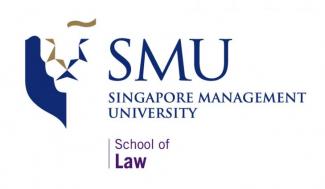
SMU School of Law wins Singapore Judicial College Grant
Office of Research – The Singapore Judicial College (SJC) is a newly established entity dedicated to the training and development of Judges and Judicial Officers. Comprising a local and an international wing, SJC was established under the auspices of the Supreme Court.
SJC wishes to develop a whole new dimension of empirical research on the work of the judiciary with the aim of serving as a test bed for innovation in judicial studies and practices. The empirical research will allow new or existing practices in the courts to be tested and validated, and will also allow the SJC to experiment with new ideas and study the findings to identify areas for refinement and implementation. In late November 2014, SMU School of Law (SOL) received the invitation from SJC to contribute to their empirical research initiatives, and we are pleased to announce that research proposals from our SOL faculty members, Associate Professor Gary Chan, Associate Professor Goh Yihan and Assistant Professor Gary Low, were awarded with the empirical judicial research grant. Below are the summaries of their research work, and we wish them the best in their research!

Gary Chan
Associate Professor of Law
Project Title: Comparative Tort of Defamation before the Singapore Courts: An Empirical Study
Overview:
Associate Professor Gary Chan’s project seeks to examine the extent to which foreign court decisions were referred to or applied in Singapore’s defamation cases, to provide judges (and lawyers) information on the approaches of the Singapore courts towards foreign court decisions in the tort of defamation.
The empirical study will cover decisions from the Singapore Court of Appeal, High Court and the District Court from 1965 to 2015, and examine if there were good reasons for the approaches adopted by the Singapore Judiciary towards the foreign court decisions and their jurisprudence in defamation cases. Analysis on the specific sub-areas of the tort of defamation will also be conducted.
Foreign court decisions will be tracked according to the prima facie elements of defamatory meaning, reference to plaintiff and publication as well as the various legal defences in defamation and the remedies. The research will also analyse data for the defamation cases which involve the issue of choice of conflicting laws and the application of the principle of double actionability.

Goh Yihan
Associate Professor of Law
Co-Project Investigator: Cheah Wui Ling, Assistant Professor of Law (NUS), Rosie Ching, Senior Lecturer of Statistics (SMU)
Project Title: A 50-year Quantitative and Qualitative Study of the Singapore Court of Appeal’s Use of Legal Scholarship in Judgments
Overview:
Associate Professor Goh Yihan’s research examines the use of legal scholarship by the Singapore Court of Appeal over the past 50 years, to understand how legal scholarship is relevant to the needs of the judicial decision-making process and its implications to all levels of legal practice.
The empirical study will present evidence describing the amount and patterns of the Singapore Court of Appeal’s use of legal scholarship over the past 50 years. Based on the analysis of the empirical evidence, the project will delve into the usage and explanations for the patterns of use to explore if there were any underlying assumptions or factors that have guided the use of the legal scholarship.
Through recognising the impact of legal scholarship on judicial decision-making process, the research also aims to raise awareness on the relevance of legal scholarship in the course of submissions to the Bar. By exploring the relationship between the courts and legal academia in Singapore, the project hopes to serve as a springboard for discussions on the role of academics and universities in developing Singapore law, a topic that is not yet subject to comprehensive research or public debate.

Gary Low
Assistant Professor of Law
Co-Project Investigator: Maartje de Visser, Assistant Professor of Law
Project Title: To Sympathise With Or To Scorn? Empathy in Singapore’s Judges
Overview:
To ascertain the level of empathy Singapore judges have when they judge, Assistant Professor Gary Low’s research explores the extent to which empathy should play a role in the dispensation of justice, and thereafter whether and how empathy can be modulated to achieve an optimal level of justice.
Analysis on data collected from a sample of judges through surveys and questionnaires will help to ascertain the relationship between levels of empathy and judicial outcomes. The findings will then be compared with the optimal outcomes posited by established theories of justice, to determine how they measure up against the latter.
With the backing of the SJC, the research hopes to raise awareness of the effect of empathy in judging and promote debate between academics and judges as to what empathy in judicial decision making ought to be.
Back to Research@SMU Issue 29